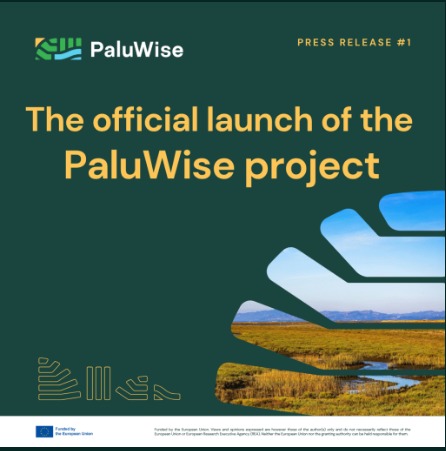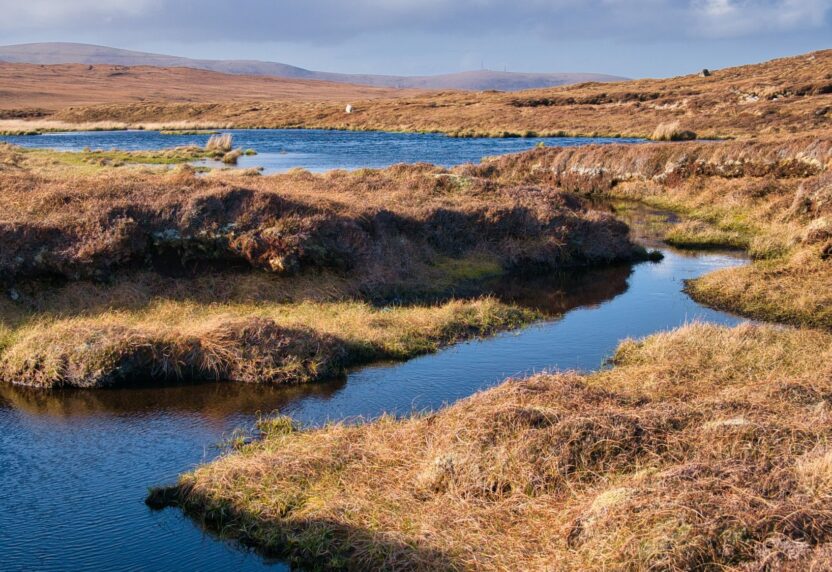
Peatlands
Our Peatlands Programme highlights the crucial role of these wetland ecosystems and strives to ensure their restoration. We identify priority actions for peatlands restoration, supporting also the transition to sustainable land management. Ultimately, we advocate for effective European policies and practices to secure the long-term health of peatlands.
Peatlands are made up of dead and decaying plant material. They include moors, bogs, mires, peat swamp forests and permafrost tundra. Covering only 4% of the land surface of our planet, they store twice as much carbon as all of the world’s forests combined.
Peatlands cover 12% of Europe, but nearly 50% of them are in poor or degraded condition. Their main threats include drainage for agriculture and forestry, and peat extraction (e.g., for horticulture and energy production). Degraded and drained peatlands release a significant amount of greenhouse gas emissions, up to nearly 600 Mt CO2 annually, making Europe the second largest greenhouse gas emitter from peatlands globally.
Yet, when healthy these ecosystems have other virtues, such as filtering and storing water, reducing risks of fires and desertification while supporting unique biodiversity, including many endangered species across Europe. Restoring and protecting peatlands is therefore one of our highest priorities.
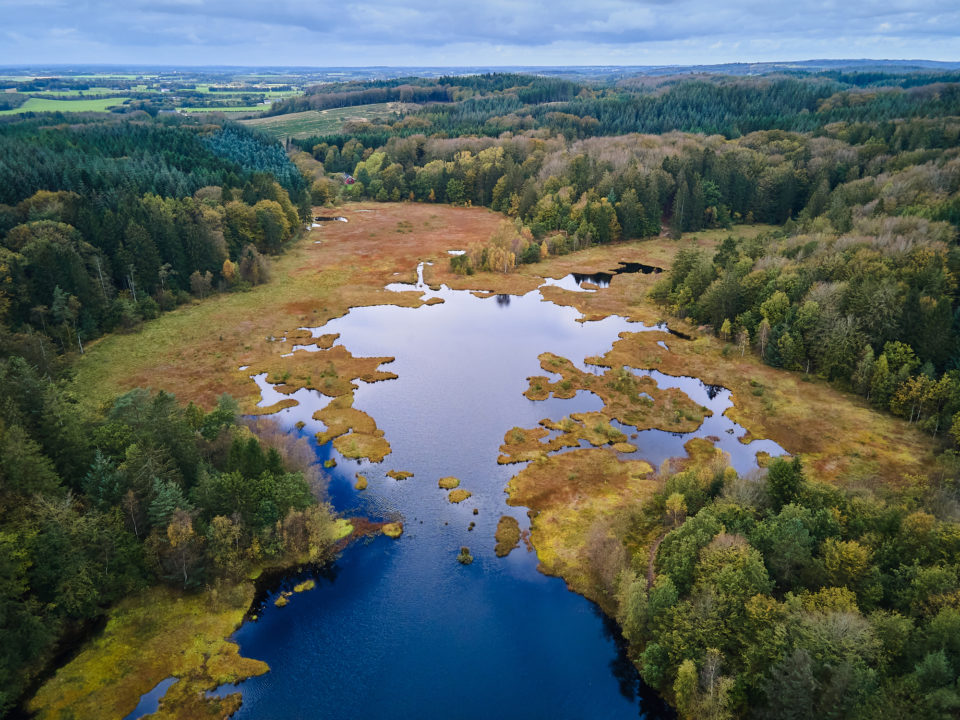
We advocate for the conservation, restoration and sustainable use of peatlands at EU level and support national efforts through our members and partners.
Our work is driven by Horizon Europe projects, where we promote best practices, restoration techniques, and knowledge sharing. We focus on ensuring that key policies, such as the Common Agricultural Policy (CAP), the Climate, Resilience, and Carbon Removals and Carbon Farming Certification Regulation (CRCF), and the Nature Restoration Law (NRL), are effectively implemented and aligned with peatland conservation goals. As part of the EU LIFE Operating Grant, we advocate for peatlands in key EU legislation.
Our objectives include advancing wet farming practices in EU legislation and raising awareness to strengthen peatland restoration efforts. By bridging science, policy, and practice, we aim to safeguard peatlands’ critical ecosystem services while contributing to climate mitigation and biodiversity targets.
Our initiatives
ALFAwetlands
Wetland Restoration for the Future.
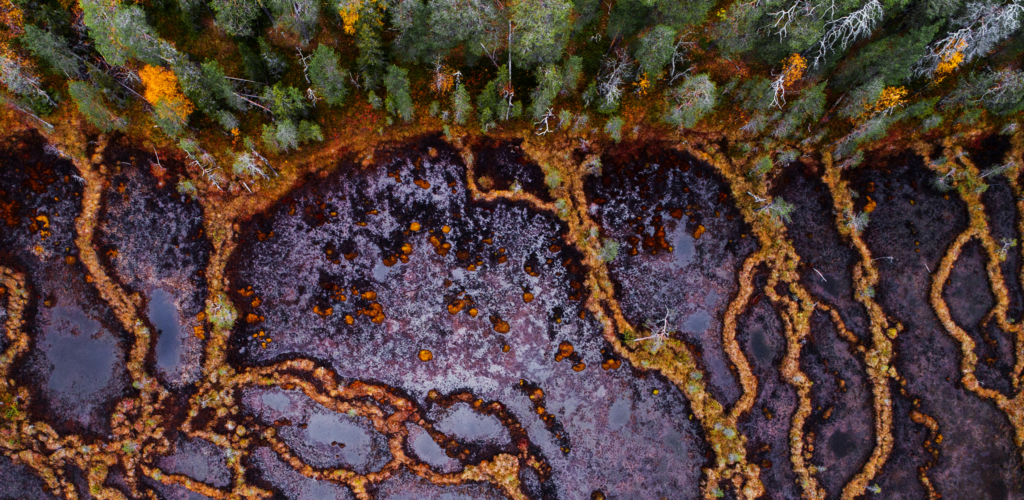
WaterLANDS
Water-Based Solutions for Carbon Storage, People, and Wilderness.

REWET
Restoration of WETlands to Minimise Emissions and Maximise Carbon Uptake.

WET HORIZONS
Upgrading Knowledge and Solutions to Fast-Track Wetland Restoration.
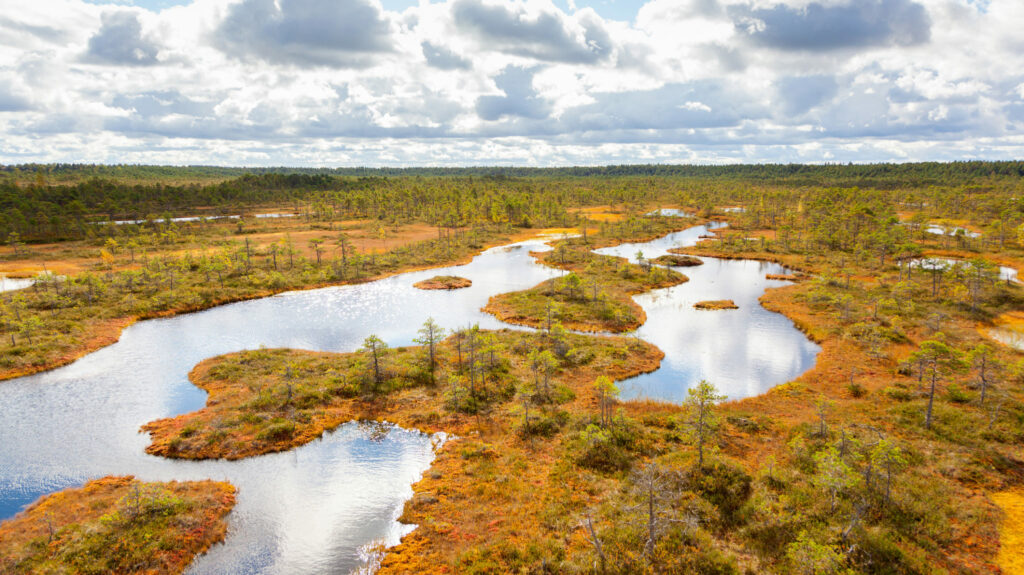
PaluWise
Transforming degraded peatlands through innovative Paludiculture
Learn more about the PaluWise project
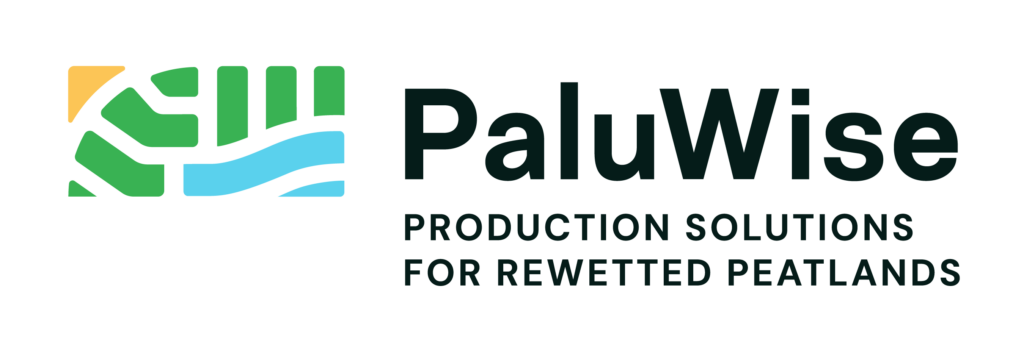
Peatlands Passport
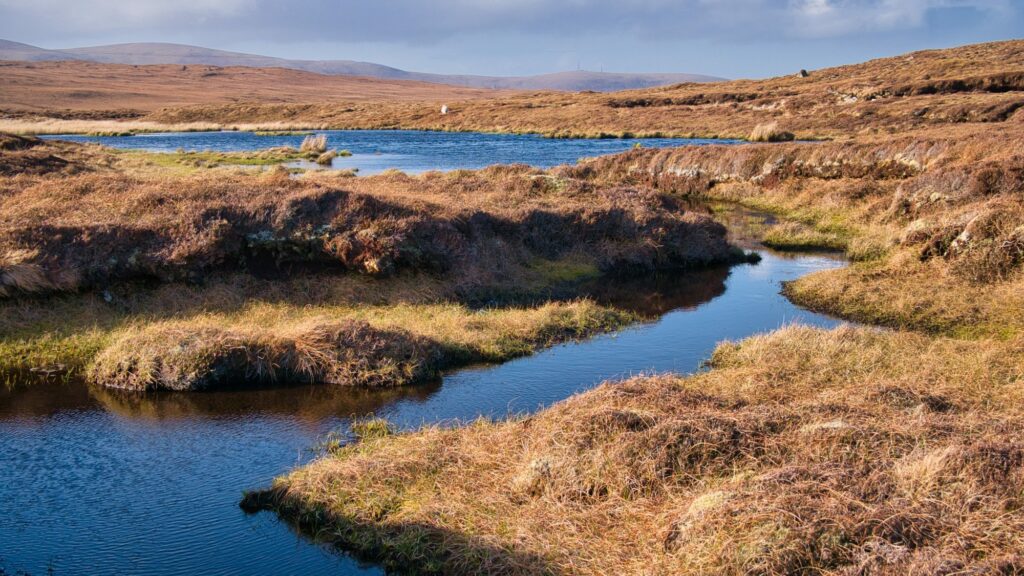
Our achievements
- Integration into key EU legislation: peatlands are featured in key EU legislative frameworks (Nature Restauration Law, EU Carbon Removal and Carbon Farming Regulation, Common Agricultural Policy), reflecting their critical importance in addressing climate and biodiversity goals.
- Securing increased EU support for paludiculture and wet farming: promoting paludiculture at the EU level has successfully resulted in enhanced funding for research and development in paludiculture and wet farming, driving sustainable land use practices.
- Giving visibility and understanding of peatland ecosystems and their restoration benefits: promote and share knowledge about peatlands ecosystems, their restauration and the ecosystems services they provide.

